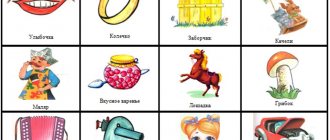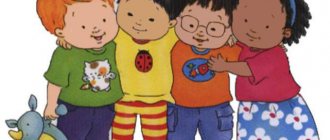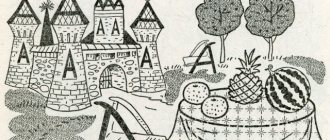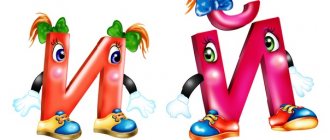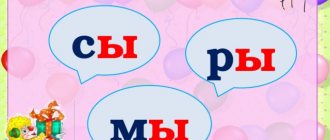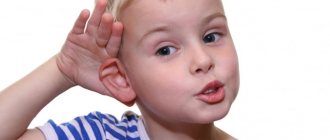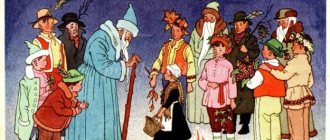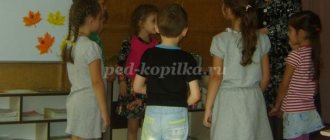Long-term plan for organized educational activities in the Russian language in the senior group
Ni Aliya
Perspective plan for organized educational activities in the Russian language in the senior group
Long-term plan for organized educational activities
for the older group .
Educational field: Communication.
«Russian language in groups with the state language of instruction».
No. Content Number of organized educational activities Timing
1 Topic: “Meeting, greeting”
Goal: Introduce words denoting greeting, farewell into the children’s dictionary, teach them to use words in accordance with the rules of the Russian language (hello, goodbye)
5
Goal: Enriching children's vocabulary through the names of toys,
primary colors, adjectives and numerals within six. 5
3 Topic: “Wild and domestic animals.”
Goal: Enrichment of active vocabulary with nouns,
meaning domestic, wild animals, birds and their young, gla-
heads indicating the actions of animals and people. 7
4 Topic: “Vegetables and fruits.”
Goal: Initial accumulation and active assimilation of new lexical units on the topic through the names of vegetables and fruits, primary colors and adjectives “big”
,
“small”
, etc. 8
Purpose: To introduce the names of body parts. Create conditions for developing skills to coordinate issues
Strong pronouns (whose, whose, whose)
and possessive pronouns
(my, my, my)
with nouns. 4
Goal: Enriching children's vocabulary with nouns denoting family members (mom, dad, grandmother, grandfather, girl, boy, sister, brother, daughter, son, pieces of furniture, verbs denoting actions (washes, plays, knits, waters, draws, stands , lives, etc.)
8
7 Topic: “Utensils and food.”
Goal: Formation of skills to coordinate adjectives with nouns in gender and number (big cup, small plates, etc.)
. 8
8 Topic: “Clothes and shoes”
Goal: Development of understanding of speech, expansion of vocabulary through new lexical units on the topic. 7
9 Topic: “In the garden and vegetable garden”
Goal: Enriching the active vocabulary with nouns denoting vegetables and fruits, adjectives denoting the attribute and property of an object (sweet, round, yellow, etc.)
. Developing the skills and abilities to understand and use interrogative sentences in speech with the word where, to whom? from whom? 5
Goal: Formation and development of listening and speaking skills in familiar and new game learning situations on completed topics and on the topic “Transport”
. 5
11 Topic: “Our favorite fairy tales”
Goal: developing skills in understanding text through reading, instilling interest in Russian folk tales 6
12 Repetition. Purpose: generalization and systematization of acquired knowledge. 4
Enrichment of vocabulary for the development of coherent speech of the child. Without a vocabulary, there is no coherent speech, there is no dynamics in the development of narrative and dialogic speech. Work on enriching vocabulary.
Technological map of organized educational activities for the development of bilingual speech for the middle group “My toys” Technological map of organized educational activities for the middle group Educational areas: “Communication” Section: Development.
Source
Features of teaching children the Russian language in the national kindergarten
Zukhra RAKHIMZYANOVA,
Russian language teacher of the first qualification category at the Karelinsky kindergarten in the Baltasinsky district
Today in the Republic of Tatarstan, teaching children two state languages from preschool age is one of the pressing issues discussed in the field of preschool education. The main goal of teaching the Russian language to Tatar-speaking preschoolers is to develop language ability, familiarize themselves with the Russian language as a means of communication and with the culture of the Russian people.
Introducing children to the Russian language greatly facilitates the process of mastering it at school, and, consequently, contributes to a faster assimilation of program material.
As a teacher of teaching the Russian language, I work according to the “Program for teaching preschoolers the Russian language” (compiled by S.M. Gaffarova, C.R. Gaffarova, G.Z. Garafieva). I conduct classes using the methodological manual by S.M. Gaffarova and others, “Learning the Russian language.”
When implementing the Federal State Educational Standard for preschool education and educational instruction, one must take into account the fact that preschoolers’ main activity is play. The new methodology for teaching the Russian language provides for such games as role-playing games, moving games, round dances, finger dances, board games, theatrical games, as well as interesting speech physical education minutes.
A mandatory component of any lesson is summing up the work done. At the first lessons, the teacher sums up the results. In the future, the children themselves say what new words and sentences they have learned, and the teacher indicates what words and sentences need to be repeated, notes active, well-working children, and does not ignore the successes of weak and shy children. This will stimulate the activation of preschoolers, which is very important: without active speech activity it is impossible to master a non-native language.
As you know, the passivity or activity of a child in class is determined by the way the teacher organizes classes with children. If you work only with active, well-responding children, then children for whom language acquisition is difficult will simply leave the teacher’s field of vision and they will eventually get used to always sitting and being silent and not participating in the lesson. It would be advisable to ask them more about known material than about new material. When answering, you cannot rush them, you need to guide them, ask leading questions, and praise them for a successful answer.
So, it is important to take into account the individual characteristics of the child . However, we must not forget one of the basic principles of the Federal State Educational Standard, such as respect for the child’s personality. If a child, when communicating with a teacher, feels like an individual, that he is respected, that he is taken into account, then, of course, he will try to prove himself, will be active and sociable.
Considering that at this time children are oversaturated with information, it is necessary that the learning process be interesting, entertaining, and developmental for them. This becomes possible when using multimedia equipment. The Federal State Educational Standard for preschool education and the Russian language teaching and learning instruction provide for the use of multimedia technology when working with children. Using this equipment, I show children educational games, cartoons, video clips, and animations. We also listen to fairy tales, songs, sounds, Russian folk melodies.
Undoubtedly, classes alone cannot ensure children’s most complete mastery of the language. Therefore, I work on teaching the language regularly and outside of educational activities: on a walk, during special moments. For example, when preparing for a walk, children name items of clothing and shoes and actively use the verbs “put on” and “take off” in their speech. During a walk, we note the weather, name natural phenomena, using grammatical structures such as “It’s cold outside,” “It’s snowing today,” “There are red and yellow leaves on the ground,” etc. In the fresh air we conduct active and round dance speech games and physical education sessions.
When planning work on teaching children the Russian language, the teacher must take into account the specifics of Russian-Tatar bilingualism, the speech situation in the group, in families, and the level of understanding of the Russian language by children. In order to teach children Russian speech, the teacher, first of all, must speak Russian competently himself. Explanations in the Tatar language should be used only in the first lessons, and in the future communication should be conducted primarily in Russian.
The Federal State Educational Standard indicates the need to involve parents in the educational process. The family plays an important role in a child’s acquisition of Russian speech. At parent-teacher meetings, I introduce parents to new teaching materials in the Russian language, and to the issues of organizing the process of teaching the Russian language in our kindergarten. Information on the content of teaching materials is posted on the kindergarten website. On mobile screens in each age group I post information about what the children have learned in class and introduce news in the field of preschool education. I conduct consultations, conversations, give recommendations and advice on language learning. I involve parents in the preparation of folklore holidays in Russian, such as “Broad Maslenitsa”, “Russian gatherings”, “Alyonushkin’s fairy tales”. These events make it possible to achieve high results in the development of children’s Russian speech, provide an opportunity to immerse them in the culture of the Russian people, and contribute to the establishment of friendly and productive contacts with parents.
I also conduct open events and classes for parents. Competitions are held with parents, such as the drawing competition “My Favorite Cartoon Character”, the competition for making homemade books “On the Roads of Fairy Tales”, the competition for video master classes “How do I teach my child Russian?”, the competition for making tabletop speech game aids “Let's play together”, etc. In the future, I would like to organize, together with my parents, a mini-museum “Russian Izba”, where it will be possible to display materials reflecting the culture and life of the Russian people.
Another form of working with parents is thematic weeks, where parents are not only spectators of the performance, but also active participants, both in the preparatory and main stages. Every year in kindergarten, towards the end of the school year, we hold a Russian language week, where children demonstrate their knowledge of the Russian language during entertainment activities. In the middle group, a game hour “Ragadaikino” was held, where children with great interest and pleasure helped Grandma Riddle “unload” a bag of riddles. The children previously learned the texts of the riddles at home with their parents and drew corresponding object pictures based on the answers. A theatrical game “Teremok with numbers” was prepared and carried out with children of older groups. The use of integration and theatrical activities at this event made it possible to increase interest in learning the Russian language. And in the school preparatory group, children played with interest the intellectual game “Experts,” where they were able to not only show off the speech knowledge and skills they had acquired over the year, but also show how they can play on the same team. And parents truly rejoiced at the success of their children.
Preschoolers master the Russian language in an artificially created language environment. The language environment must be developmental in nature. The concept of a language development environment includes both the language environment itself and the child’s subject-development environment in the classroom. In our Russian language classroom, a subject-development environment in accordance with the Russian language teaching materials. Demonstration and handout materials are placed in separate files and folders. Audio and video materials are collected and placed in virtual folders on the laptop desktop. Speech games based on teaching materials are presented in the form of separate cards. Using these unique cheat sheets it is always convenient to remember this or that game. All materials are numbered. In order to quickly find the necessary material, a card index has been compiled. The office is equipped with multimedia equipment (projector, laptop, screen). Such an environment stimulates children’s foreign language speech activity and promotes the rapid development of speech skills.
So, in order for the process of learning the Russian language to be effective, it is necessary:
– taking into account and implementing the principles and objectives of the Federal State Educational Standard for preschool education;
– taking into account the age characteristics of children;
– taking into account the individual characteristics of children;
– differentiated approach to children;
– use of visual aids (demonstration and handout materials, videos, toys, multimedia presentations, etc.);
– use of games (finger, mobile, speech, phonetic, physical education);
– active involvement of parents in the educational process;
– creation of a developing language environment that meets the requirements of the Federal State Educational Standard for preschool education and educational instruction in the Russian language.
Read materials from the magazine “Magarif” No. 12 here.
Notes on educational activities in the Russian language in the senior group “Favorite time of the year”
Shonchalai Shanmak
Notes on educational activities in the Russian language in the senior group “Favorite time of the year”
Abstract of GCD in the Russian language in the senior group.
Conducted by the teacher of the senior group of MBDOU d/s "Khunchugesh"
With. Ak-Durug Shanmak Sh. O.
Topic: Favorite time of year
Goal: formation and development of skills and abilities of practical knowledge of the Russian language in oral form . Continue to introduce children to words meaning seasons - autumn , winter, spring, summer. Learn to make short sentences based on a picture, distinguish the seasons , understand and use words denoting the seasons . Repeat the words of the topic: Colors. Develop coherent speech and enrich children's vocabulary. Foster interest and respect for the Russian language .
Work on the pronunciation of voiced and soft consonants.
Visual aids: doll, images of the seasons ; snowflakes, flowers, green and yellow leaves cut out of paper.
Mother Language Week Plan
Lyana Dallakova
Mother Language Week Plan
Monday
Russian folklore: Song “Like during the oil week .”
Drawing “Russian folk clothes ”
– continue to introduce the history and features of Russian
folk costume . Expand knowledge about Russian folk culture . Strengthen the ability to draw Russian folk clothing .
Russian character, kindness, courage, hard work, justice.
Russian folklore: Joke Brothers, brothers."
Learning the poem cube. poet
S. Podkopaev “Our Krasnodar Land”
Work with parents Consultation “Raising a child using the native language and folk art ”
Consultation for parents
“The role of Russian folklore in the education of preschool children”
Final event: entertainment “Folklore gatherings”
Photo report “International Mother Language Day” Every year since 2000, International Mother Language Day is celebrated on February 21. Each people has its own language. And they are transmitted in language. Photo report “Carrying out the day of the native language in the middle group” Teaching children their native language and mastering its richness is given great importance in the curriculum of preschool education of the Republic. Photo report on the interregional forum of teachers of native language and literature “Intercultural communication as a factor in strengthening the unity of the people” on February 21 at the interregional forum of teachers of native language and literature. Abstract of the educational activity for the development of speech “Mother Language Day” in the senior group Objectives: to consolidate knowledge about the International Mother Language Day; develop the semantic side of speech through the consolidation of antonyms, synonyms, and polysemantic ones. International Mother Language Day Recently, while leafing through the ethno-calendar, I came across the date of February 21, it turns out that the UNESCO General Conference in 1999 was intended to promote.Consultation “The role of the native language in the development of the personality of a preschooler” The role of the native language in the development of the personality of a preschooler. Kushneruk T.N., teacher, MDOU Kindergarten No. 3 Vlasikha, Moscow region Exceptional.
Source
Progress of the lesson:
Surprise moment. (Doll Katya arrives)
:
Q- Hello guys! Doll Katya, you haven’t forgotten the names of the children.
R- No. My name is Zhenia.
(The doll fits every child.)
Q- Let's tell the doll Katya what new words we learned in the last lesson. Look at the picture and name the season .
D-Spring, summer, autumn, winter.
B- And now each of you will tell the doll what time of year he likes (approaches each child with the doll.)
D- I like autumn. I like winter.
K-Misha, do you like winter?
K- Aidan, do you like spring?
B- Well done! Each season has its own color . What color is winter? That's right, white (ak)
. Repeat after me. Winter is white. What color is spring? Of course spring is green. What color is summer? Summer has red, yellow, blue and green colors. Autumn also has its own color. Autumn yellow color.
Bent over once, bend over twice
He spread his arms to the sides,
Apparently I couldn't find the key.
To get us the key,
You need to stand on your toes.
Q - Now let’s switch, I will name the time of year , and you pick up the corresponding object. (V-l calls Summer, the children pick up flowers, spring - the children pick up green leaves, etc.)
B- Well done guys! And now the Katya doll also wants to play with you. The game is called "Confusion"
.
(The doll points to the snowflake)
. Summer?
(The doll points to the flower)
. Spring?
Doll: do you like summer? Why do you like summer? All children love... what? That's right, summer.
Q- What can you do in the summer?
D- I can run. I can swim. I can jump. I can play.
B- And now we’ll play the game “Pantomime”
.
I will show you with the help of gestures what I do at this time of year , and you will name this time of year .
On the topic: methodological developments, presentations and notes
Lesson notes for children with ODD in the sixth year of life. Designed to develop coherent speech and update vocabulary on the topic “Vegetables”.
Goal: to develop children’s interest in books and the need to read.
Objectives: - Introduce children to the flora and fauna of their native land - Teach children to write short stories about the animals of their native land - Cultivate in children a caring attitude towards wildlife and desire.
The summary is intended for children of the senior group of mental retardation.
The summary assumes that children will be introduced to Polkhov-Maidan painting during art classes.
The material may be useful to kindergarten teachers.
To acquaint children with the history of toys, to form children’s knowledge about the functional purposes of toys.
Source
